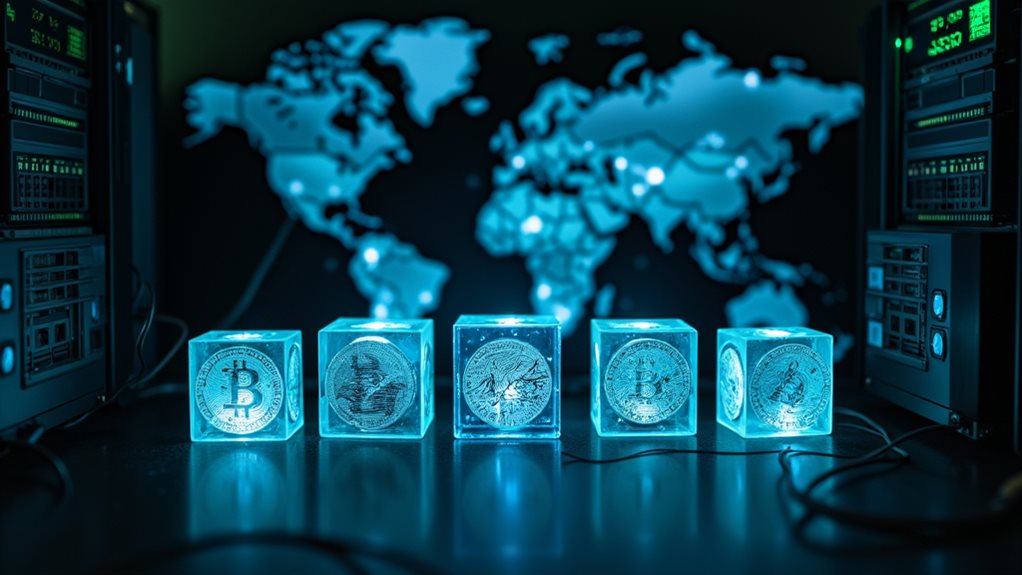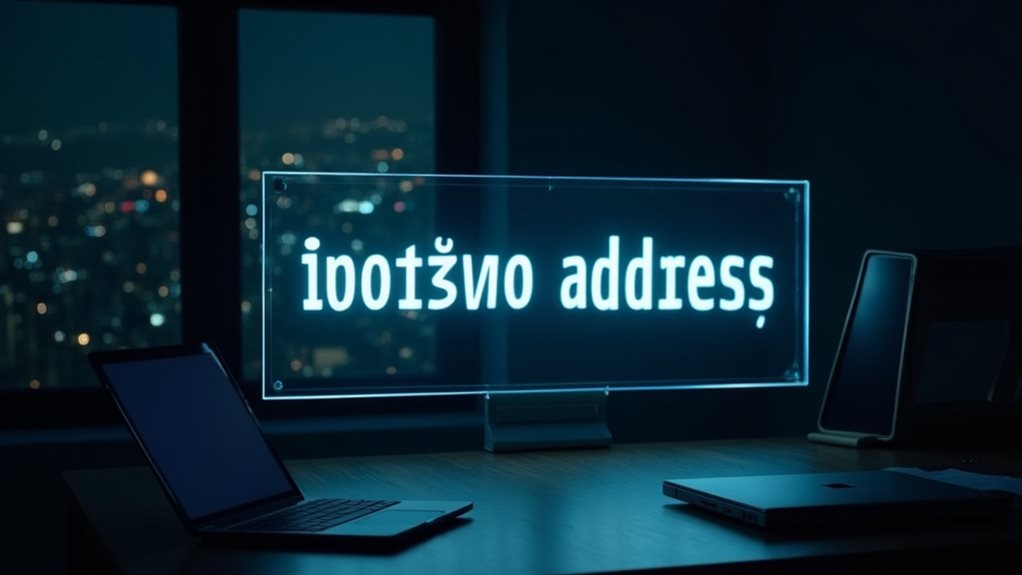Bitcoin operates as a revolutionary digital currency system, free from banks and government control. Transactions flow through a decentralized network where miners validate exchanges using powerful computers to solve complex puzzles. Each Bitcoin lives on a transparent blockchain ledger, secured by private keys and limited to 21 million coins total. Users send funds directly to each other's digital wallets while the network tracks every move. The rabbit hole of Bitcoin's inner workings goes much deeper.

What began as a mysterious digital experiment has evolved into a financial revolution that's impossible to ignore. Bitcoin, the world's first decentralized digital currency, operates on a groundbreaking system called blockchain technology. Think of it as a giant, transparent ledger that everyone can see but nobody can tamper with. No banks. No governments. Just pure, peer-to-peer transactions happening across a global network.
The whole system runs on some pretty clever mechanics. Every Bitcoin transaction gets verified by miners – tech-savvy folks with powerful computers who solve complex mathematical puzzles. It's like a digital gold rush, except instead of pickaxes, they're using processing power. These miners compete to validate blocks of transactions, and the winners get rewarded with fresh Bitcoins. Not a bad gig, if you can afford the electricity bill. Investors should consider that spot Bitcoin ETFs became available in early 2024.
Here's where it gets interesting: Bitcoin has a fixed supply of 21 million coins. That's it. No printing more when the economy gets tough, unlike traditional currencies. Each Bitcoin can be divided into tiny pieces called Satoshis – one hundred millionth of a Bitcoin, to be exact. Talk about precise accounting. The concept was introduced by Satoshi Nakamoto in 2008 through a revolutionary white paper. While Bitcoin remains the foundation of cryptocurrency, innovative solutions like Wrapped Bitcoin now enable its integration with other blockchain platforms.
Unlike traditional money printers, Bitcoin's 21 million coin limit keeps it rare, while Satoshis make it infinitely divisible.
The security system is genius in its simplicity. Users have two keys: a public one (like an email address) and a private one (like a password). Lose that private key, and your Bitcoin is gone forever. No customer service hotline to call, no password reset option. The system is ruthlessly unforgiving that way. The blockchain ledger ensures every transaction remains permanently auditable and immutable.
When someone sends Bitcoin, the transaction gets broadcast to the entire network. Miners verify it, bundle it with other transactions into a block, and add it to the blockchain. Once it's there, it's permanent. No takebacks, no chargebacks, no "oops, I didn't mean to send that" moments. The transaction fees go to the miners for their trouble. It's a self-sustaining ecosystem.
The whole system operates without any central authority pulling the strings. Bitcoin's value? Pure supply and demand in the cryptocurrency market. No central bank manipulating interest rates, no government printing money at will. Just raw market forces at work.
The transactions are pseudonymous – not completely anonymous, but identified only by wallet addresses. It's like having a bank account where everyone can see the transactions, but nobody knows who owns it.
Frequently Asked Questions
Can Bitcoin Transactions Be Reversed or Canceled Once Sent?
Nope. Once a Bitcoin transaction hits the blockchain, it's there forever – end of story.
Unlike regular bank transfers where you can beg customer service for a refund, Bitcoin transactions are permanent and irreversible. That's actually the whole point.
While there's a tiny window to potentially modify unconfirmed transactions using methods like Replace-by-Fee (RBF), once confirmed, that money is gone.
Like dropping cash down a drain. Tough luck.
What Happens to My Bitcoin if I Lose My Wallet Password?
Losing a Bitcoin wallet password is often a permanent disaster.
Without proper backups, those coins are basically locked away forever – like gold bars at the bottom of the ocean.
The math is brutal: no password means no access. Period.
Some specialized recovery tools exist, but success rates aren't great.
Plenty of Bitcoin millionaires are actually "Bitcoin losers" now, sitting on fortunes they can't touch.
It's a harsh reality of decentralized currency.
How Do Bitcoin Mining Rewards Change Over Time?
Bitcoin mining rewards follow a predictable pattern – they get cut in half every four years. Period.
Started at 50 BTC per block in 2009, dropped to 25 in 2012, then 12.5 in 2016, and now sits at 6.25 BTC since 2020. Pretty straightforward math, really.
These "halvings" will keep happening until around 2140 when all 21 million bitcoins are mined.
After that? Miners will only get transaction fees. Talk about playing the long game.
Why Does Bitcoin's Price Fluctuate so Dramatically?
Bitcoin's wild price swings stem from multiple forces colliding.
Supply is fixed at 21 million coins – period.
But demand? That's where things get crazy. Market sentiment shifts like a rollercoaster, influenced by everything from tweets to government crackdowns.
Throw in institutional investors moving billions, speculative trading, and market manipulation tactics, and you've got a recipe for extreme volatility.
Plus, being a 24/7 global market means price action never sleeps.
Are Bitcoin Transactions Completely Anonymous?
No, Bitcoin transactions aren't completely anonymous – not even close.
While Bitcoin uses pseudonyms instead of real names, the blockchain records everything publicly.
Think digital footprints, impossible to erase. Transactions can be traced using blockchain explorers and wallet addresses.
Sure, there's some privacy through pseudonymous addresses, but with the right tools and data, transactions can be linked to real identities.
Pretty transparent for something people think is secretive.









